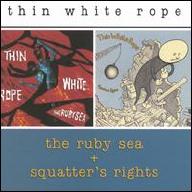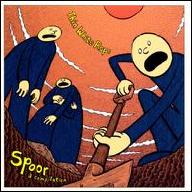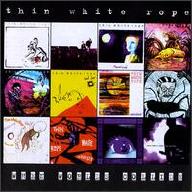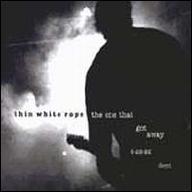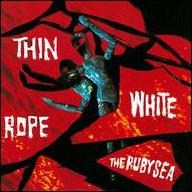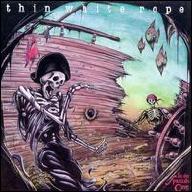While Thin White Rope's 1985 debut Exploring the Axis flirted with neo-psychedelia, the 1987 follow-up Moonhead upped the ante by allowing the desperation of Kyser's lyrics to take full command of the music. Unrelentingly grim and harrowingly provocative, the album's best songs -- like "Crawl Piss Freeze" and "If Those Tears" -- were postcards from the edge. Following the addition of new bassist John von Feldt, 1988's In the Spanish Cave continued along the same path, albeit with a renewed sense of humor ("Mr. Limpet") and more oblique wordplay.
Though garnering little notice stateside, Thin White Rope earned a solid fan base in Europe, and even became the first American independent-label act to tour the Soviet Union. 1990's Sack Full of Silver, a collection of songs written while on tour abroad, featured new drummer Matthew Abourezk as well as a newly focused sonic attack; the album also featured a left-field rendition of Can's "Yoo Doo Right," a hint of things to come on the 1991 all-covers EP Squatters' Rights.
1991's full-length The Ruby Sea, a dense, atmospheric work highlighted by the riveting "Clown Song," proved to be Thin White Rope's studio swan song: in 1992 the band split, and while most of the players continued performing in various musical projects, Kyser devoted himself to a career as a botanist. The posthumous The One That Got Away 6-28-92 Ghent, a two-disc live set recorded in Belgium peppered with odd covers of Lee Nancy's "Some Velvet Morning," Bob Dylan's "Outlaw Blues," and Hawkwind's "Silver Machine" appeared in 1993. Spoor, a collection of demos, remixes, and rare tracks, followed two years later. ~ Jason Ankeny, Rovi


